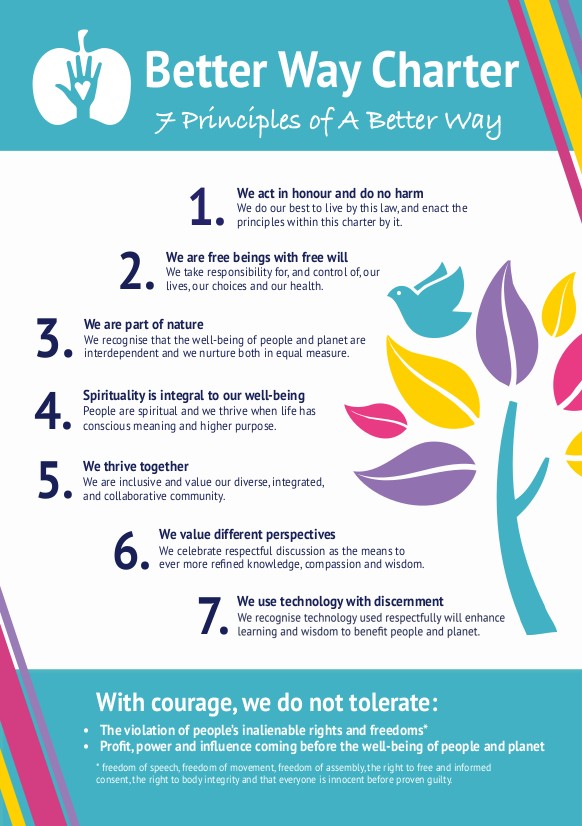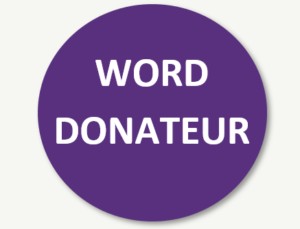The special issue of Chinese Medicine and Culture, volume 7, discusses the global cross-cultural integration of TCM in the mainstream healthcare, medical education and the practice of medicine. It describes how TCM was established in the west, how schools were formed, how regulation was put together, and what is the future of the profession. With interviews of some of the key pioneers in the field, Ted Kaptchuk, Peter Deadman, Will Morris, Nigel Wiseman, Peter Eckman, John McDonald , Judy James, Felicity Moir, Edward Neal, and Mel Hopper Koppelman. You can access the journal through this link: https://journals.lww.com/CMC/pages/default.aspx
Ioannis Solos was kind enough to also uploaded the pdf of the entire issue on Google Drive: https://drive.google.com/file/d/1fT4BSSEJ5uH8wqeWbry38NoLz2lo4nFJ/view
#tcm #china #healthcare
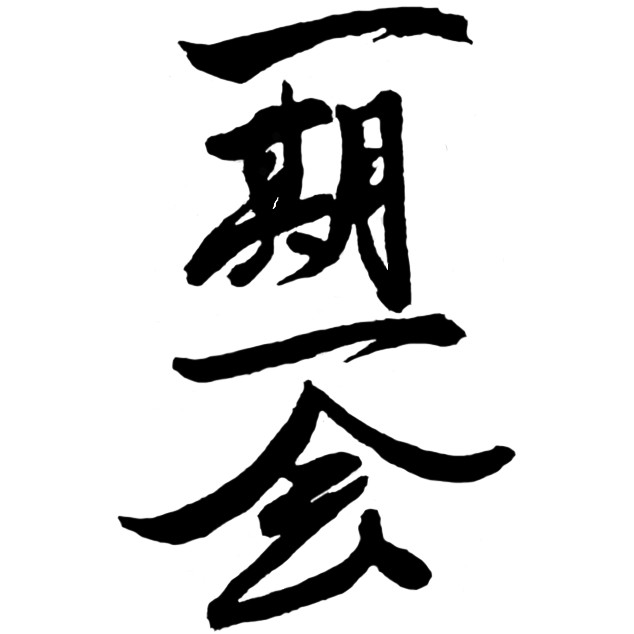
How the mid-Victorians worked, ate and died
Analysis of the mid-Victorian period in the U.K. reveals that life expectancy at age 5 was as good or better than exists today, and the incidence of degenerative disease was 10% of ours.
https://www.ncbi.nlm.nih.gov/pmc/articles/PMC2672390/
#health #food #exercise
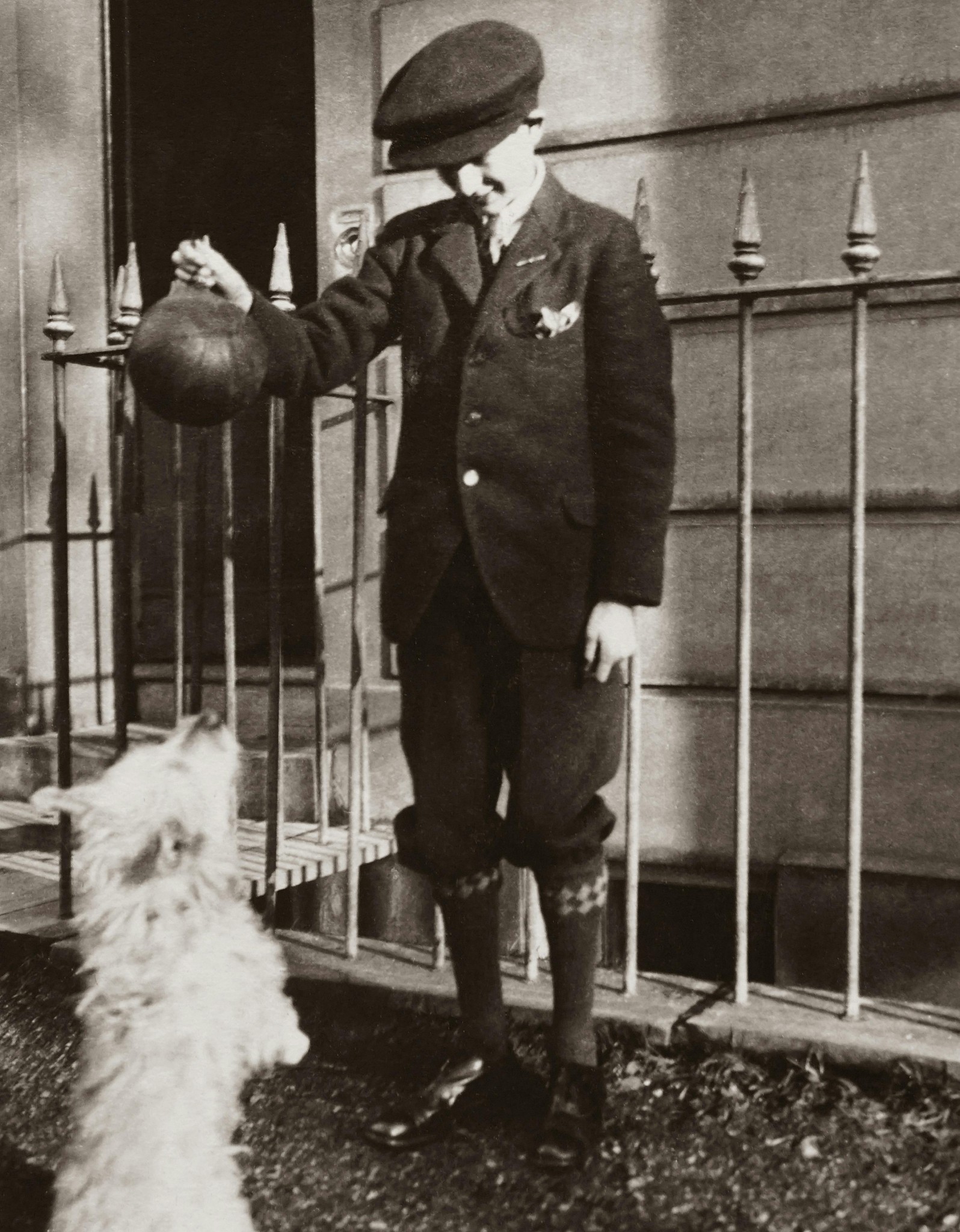
"Dry needling" or "Trigger point needling" do not seem to have a scientific basis, contrary to real traditional acupuncture, which has a huge evidence base:
https://www.linkedin.com/pulse/trigger-point-myth-who-claimed-confidently-accurately-brook-cheng-xb1oc/
#acupuncture #dryneedling #triggerpoints #science #evidence
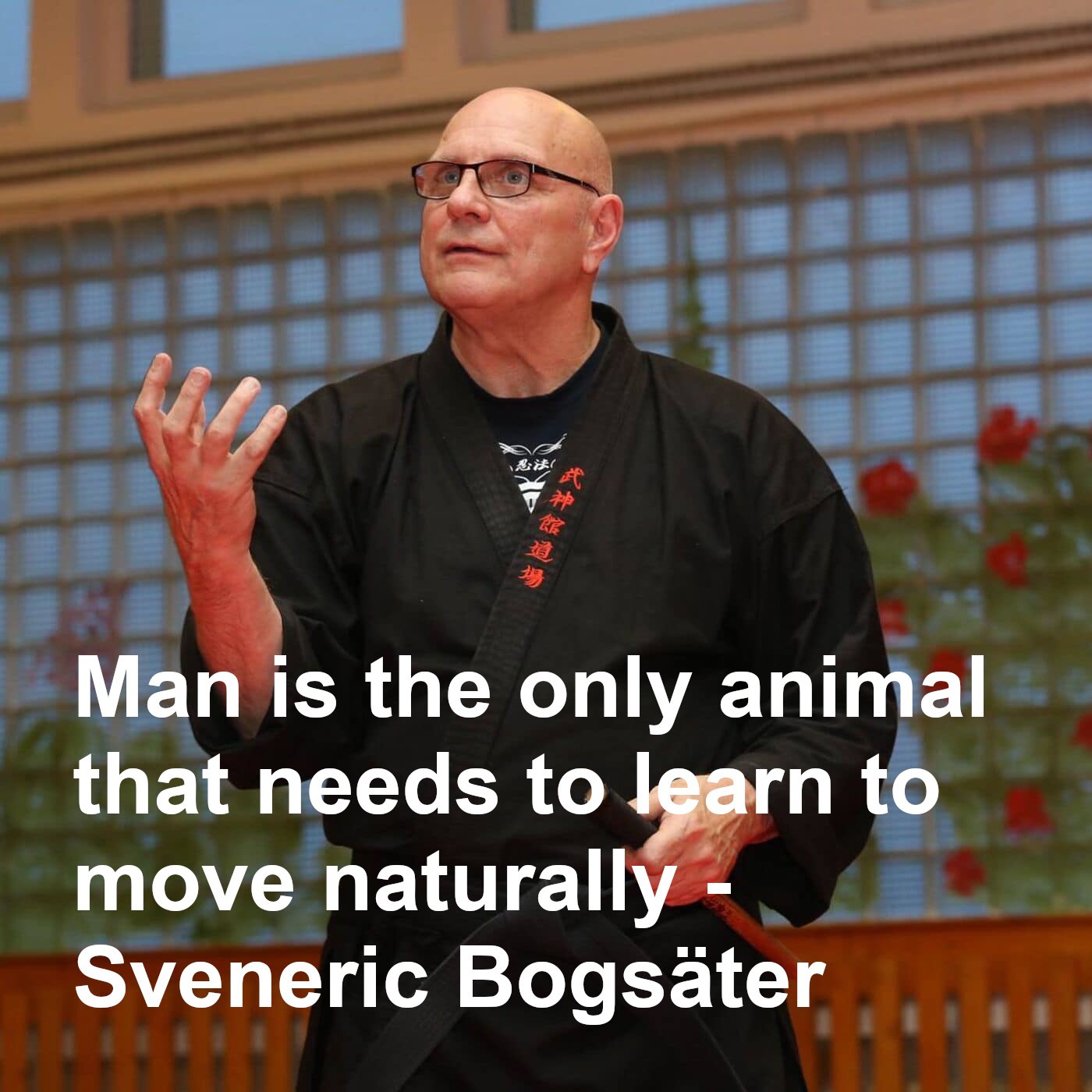
Blood letting and cupping most effective for migraines
Initial findings indicate that acupuncture-related therapy exhibits superior effectiveness in the treatment of migraine and clinical decision-making should be patient-specific.
https://www.acupuncturetimes.com/blood-letting-and-cupping-most-effective-for-migraines/
#migraine #acupuncture

Bijna 70 jaar geleden in de Panorama een mooi verhaal over acupunctuur.
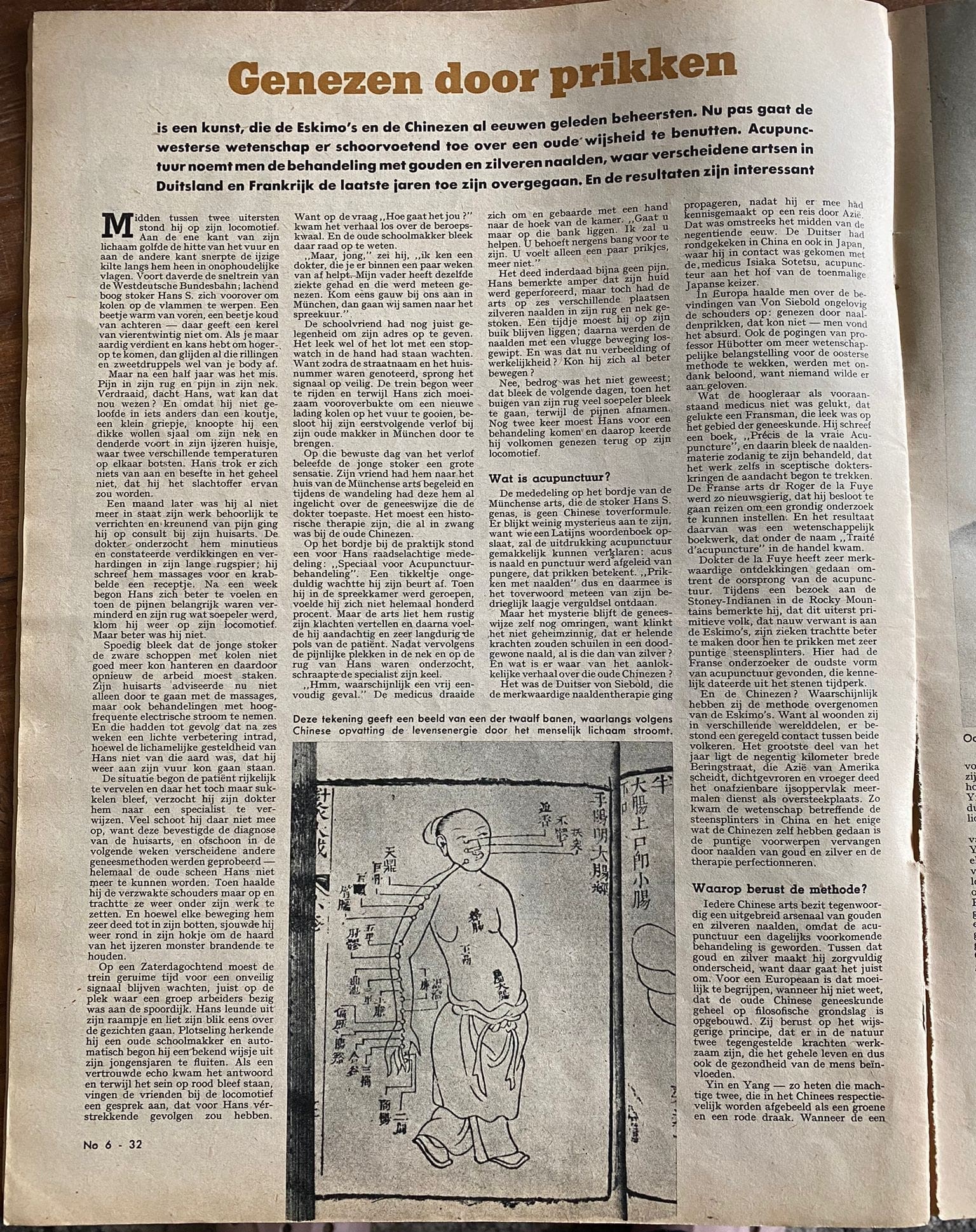
Acupuncture helps diabetic wound healing
https://www.acupuncturetimes.com/acupuncture-helps-diabetic-wound-healing/
#acupuncture #wound #diabetic #healing
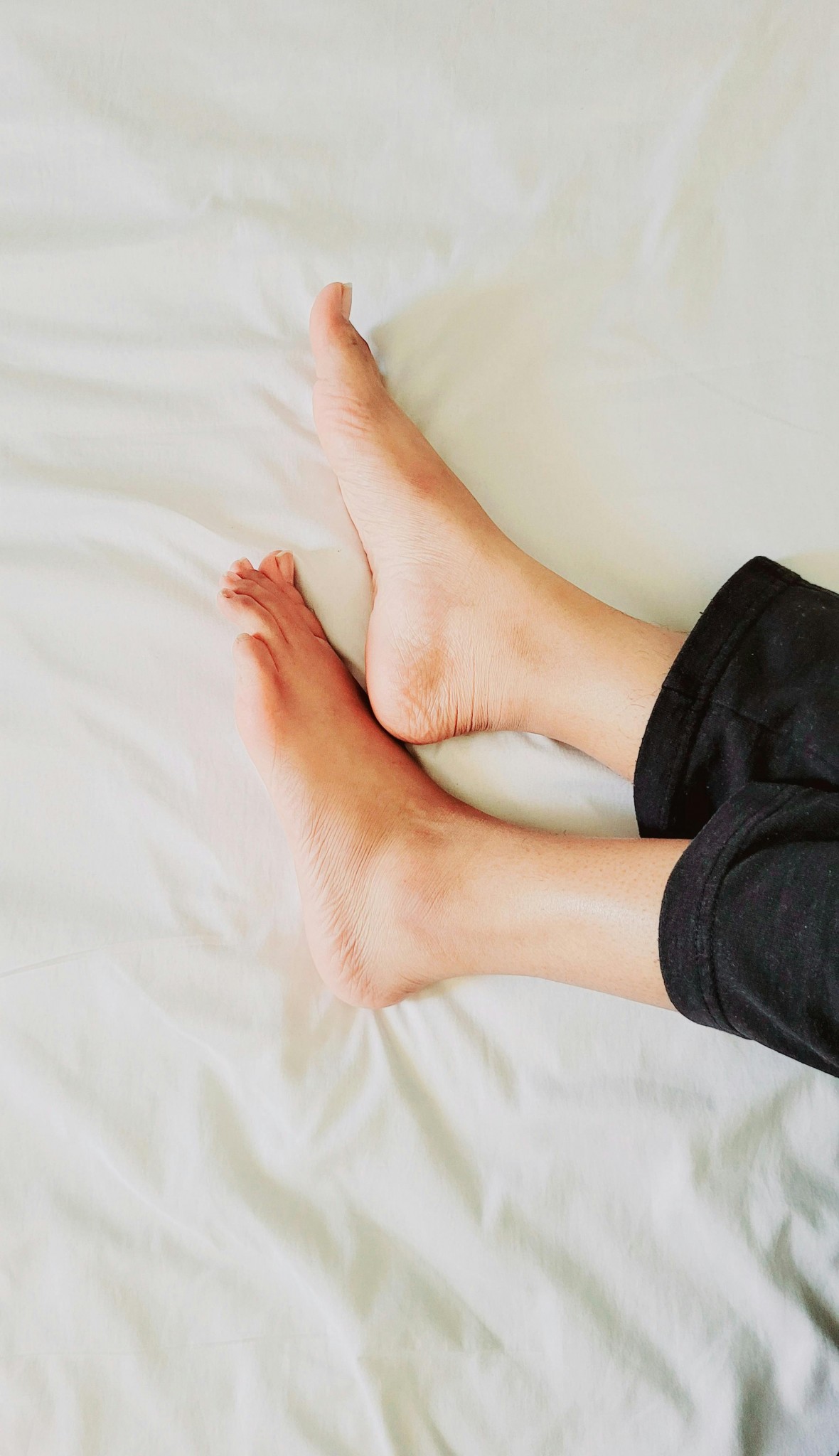
I have thought quite a bit about what should become of this institute that we call "healthcare". Is it a monumental grand project, one of mankind's greatest achievements, like the pyramids? In countries where modern healthcare is not available, there is much suffering that may have been prevented.
On the other hand, modern medicine is one of the top causes of death in developed countries, and that doesn't seem to get much better, and it is enormously expensive too, among the biggest items on a nation's budget, increasing very rapidly, again with no end in sight.
There is no natural limit to what could be spend on healthcare: no matter how much is spend, still people will die, still some people will not receive the help we would want them to get. And sadly, no developed country has yet really succeeded in integrating the best forms of medicine, which I consider acupuncture and Traditional Chinese Medicine to be, into the national healthcare system, even though some tantalising efforts have been made.
Who decides what should be the scope? What should be included and what not? What can it cost, and who shall pay?
Is, in the end, the public healthcare system a right, or a privilege?
Thomas Buckley offers a different paradigm through which to view healthcare: healthcare as an evolutionary advantage. I found his essay very interesting.
https://brownstone.org/articles/health-care-right-privilege-or-neither/
Chinese secret writing for women only
From Igor Simonov:
Nüshu (女书 nǚshū) is practically the only written language in the world intended for women to communicate exclusively with each other. Presumably, it appeared in the 11th century, but became known to wide circles only at the end of the 20th century. Secret writing texts were also embroidered on clothes and fans. Unfortunately, elderly women often asked that the manuscripts be burned or buried with them, so a huge part of the works has not survived to this day. EKD talks about the language that united the women of a small county and frightened the Japanese invaders.
The exact origin of writing is still unknown. According to one legend, nüshu was created by concubine Hu Yuxiu (胡玉秀 Hú Yùxiù) in the period 1086-1100 to tell her family about her sufferings and misfortunes. The girl did not enjoy the favor of the Chinese emperor and, with the help of secret messages, asked her parents never to send their daughters to the palace. The official version says that Nyu Shu was created in Jiangyong County, Hunan Province, and was mainly used by peasant women who did not speak literacy or traditional Chinese writing. In imperial China, only girls of the upper classes living in large and wealthy areas of the country could learn to read and write. Rural girls had no access to education, and all their education boiled down mainly to the need to be submissive and obedient to their husbands. As Lü Kun (呂坤 Lǚ Kūn), a writer and thinker of the Ming Dynasty (1368–1644), said, “Today, few teach their daughters to read and write for fear that they may become too ambitious.” Therefore, Nyuishu became the only form of written communication for girls.
https://www.bbc.com/travel/article/20200930-nshu-chinas-secret-female-only-language



